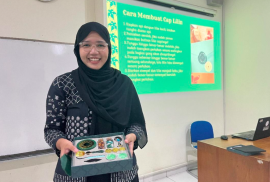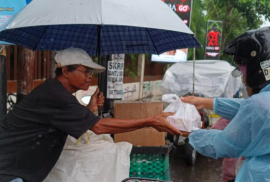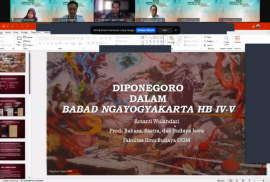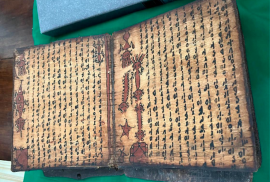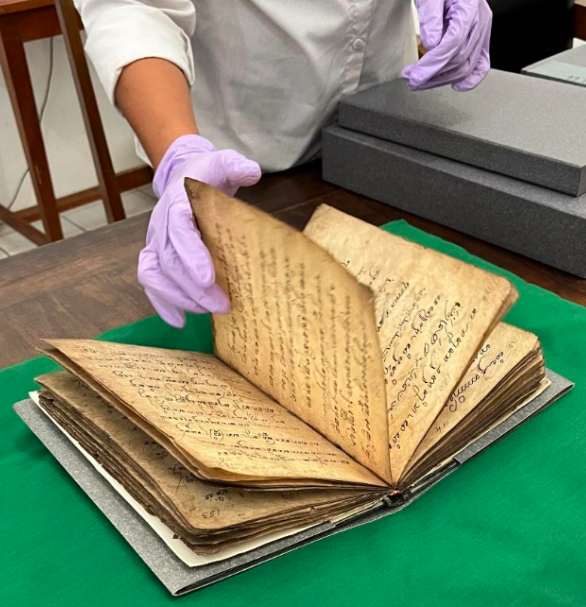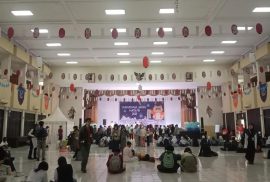Yogyakarta, 30/4/2025 – Never losing its fun, day by day, the Codicology lectures feel more and more enjoyable. Including Monday, April 21, 2025 yesterday. In this eleventh meeting, Javanese Language, Literature, and Culture students of the 2023 class were invited to practice stamping and sealing.
However, before practicing making stamps, students listened to material about the use of stamps and sealings in letters from the past. A letter stamp itself is a printed image, writing, or a combination of both on a letter or other important document. Its function is as a marker/identifying symbol that represents a person or group to indicate validity. In addition, a letter stamp also functions as a guarantee of the integrity (seal) of a letter. Materials that can be used for letter stamps are wax, clay, soot, or ink.
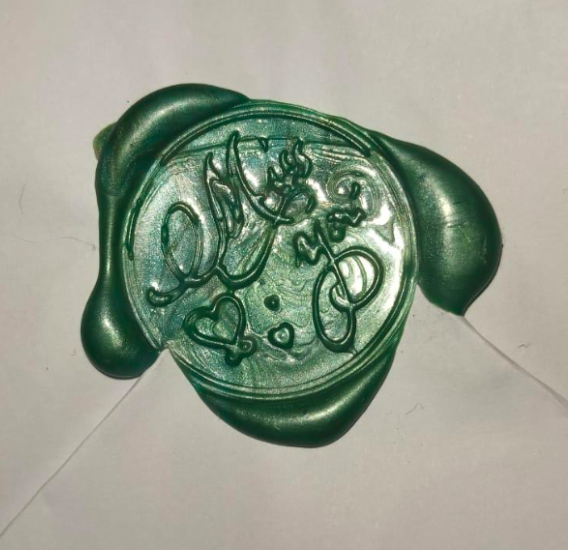
A stamp is a tool with a surface carved with images, writing, or both that produces a stamp. The stamp material is made of hard materials such as metal or stone and elastic materials such as rubber. The shape of the stamp surface varies widely, it can be round, square, oval, hexagonal and other shapes such as flowers and swords. Meanwhile, the shape of the handle can be a grip or ring.
In addition, there is an explanation of the meaning of the position of the stamp in the letter. For example, the stamp of letters in Batavia made by the Dutch is located on the right side of the letter near the beginning of the text. The placement of the stamp position like this shows that the position of the sender of the letter is higher than the recipient. The position of the letter stamp that is above and parallel indicates a partnership or with the same position. While a lower position, such as below the text of the letter indicates that the sender’s position is lower.
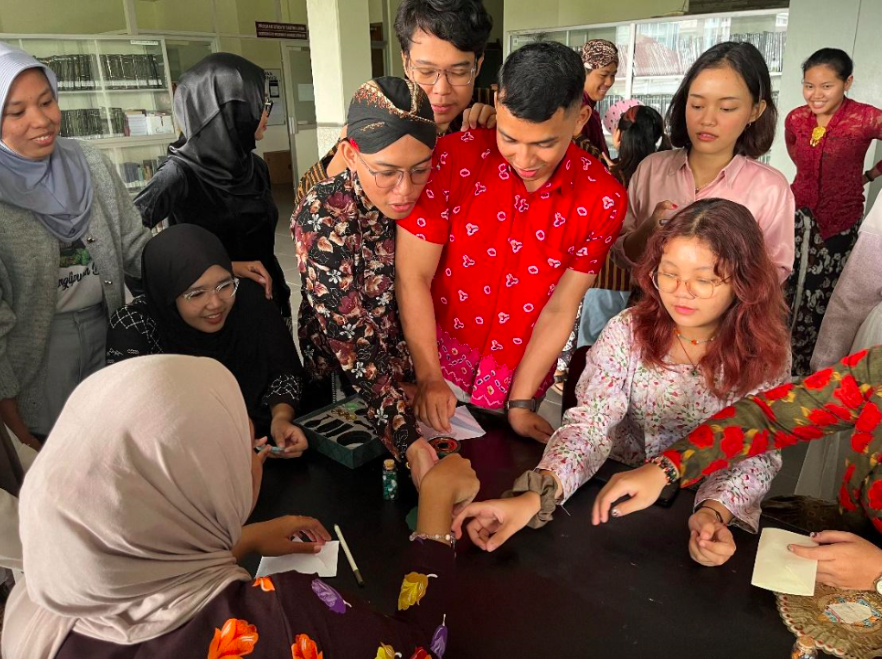
In this lecture, in addition to being introduced to the meaning of stamps and sealings in the past, students are also invited to practice making stamps with materials and tools provided by the lecturer. Thus, students can learn and know about making stamps.
[Public Relation of Javanese Literature, Haryo Untoro]
Source:
Kumar, Ann dan John H. McGlynn (ed). (1996). Illumination: The Writing Traditions of Indonesia. Jakarta: Yayasan Lontar
Mu’jizah. (2009). Iluminasi dalam Surat-Surat Melayu Abad ke-18 dan ke-19. Jakarta: Kapustakaan Gramedia Populer (KGP).
Mulyadi, Sri Wulan Rujiati. (1994). Kodikologi Melayu di Indonesia II. Depok: Lembaran Sastra Fakultas Sastra Universitas Indonesia.

